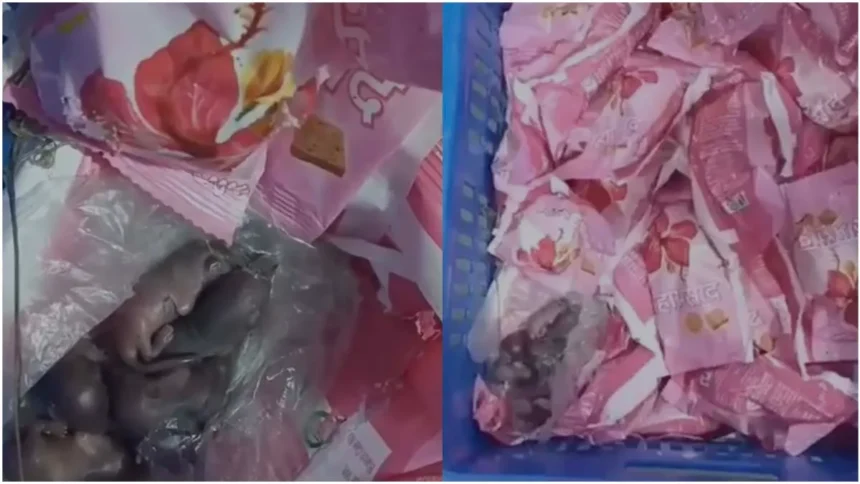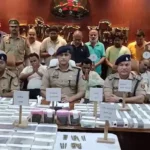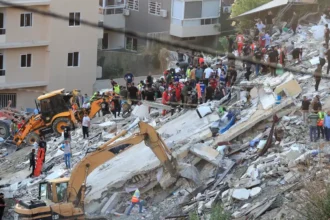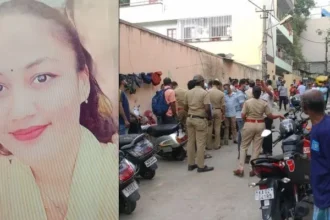In a shocking and unsettling incident, rat babies were allegedly found inside the Mahaprasadam laddus distributed at the revered Siddhivinayak Temple in Mumbai. The viral videos and images that emerged on social media have sparked outrage among devotees and the general public, raising serious concerns about the cleanliness and sanctity of prasad offered at one of India’s most iconic temples. The incident, which surfaced in September 2024, has led to an official investigation by the Siddhivinayak Temple Trust, but questions remain about how such a breach in hygiene occurred.
The Discovery: What Happened?
Reports suggest that rat babies were spotted inside prasad packets, specifically the laddus, distributed by the temple to devotees. The viral images show the rats crawling over and inside the prasad, causing widespread shock. The Siddhivinayak Temple, known for preparing over 50,000 laddus daily to meet the high demand from visitors, is now under intense scrutiny for its prasad preparation methods.
The Mahaprasadam laddus, which are a sacred offering to Lord Ganesha, have long been a symbol of devotion and purity for the temple’s devotees. This incident has called into question the hygiene protocols in place at the temple’s prasad preparation facilities, especially as the viral footage shows rat-infested laddus.
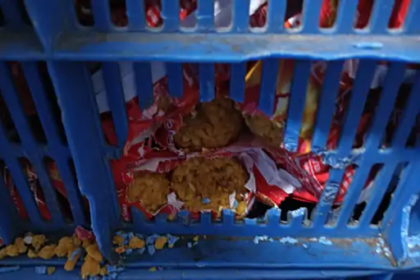
Temple Trust’s Response: Investigation Underway
In response to the viral images, the Siddhivinayak Temple Trust has launched an immediate investigation. Veena Patil, the secretary of the temple trust, has stated that the authenticity of the videos is under review, and the temple authorities are working to verify whether the footage was genuinely captured inside the temple. Patil added, “At first glance, it does not appear that these images are from the Siddhivinayak Temple. We are conducting an investigation and reviewing CCTV footage to get clarity on the matter.”
The Food and Drug Administration (FDA), which regulates food safety in India, has also been notified of the incident. The temple management is committed to fully cooperating with authorities to determine how and why these lapses in hygiene occurred.
A Larger Problem: Hygiene and Safety at Religious Sites
This incident is not an isolated case. It comes on the heels of a similar controversy at the Tirumala Balaji Temple in Tirupati, where animal fat was allegedly found in the ghee used to prepare the prasad. These consecutive scandals have brought into focus the broader issue of food safety and hygiene at religious sites across India, where thousands of devotees receive prasad offerings daily.
In the case of the Siddhivinayak Temple, where an average of 50,000 laddus are made every day, the pressure to maintain high standards of cleanliness is enormous. During major festivals like Ganesh Chaturthi, this number can increase significantly, adding to the logistical challenge of ensuring that every prasad packet is safe for consumption. While the ingredients used are FDA certified, the storage and handling of the Mahaprasadam are now under intense scrutiny.
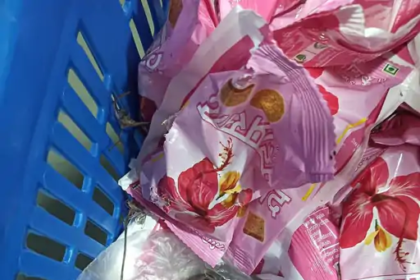
Public Outcry and Reactions
The news of rat babies found in the Mahaprasadam has led to a massive outcry on social media, with many questioning how such a breach of hygiene could happen at such a prominent temple. Devotees and religious groups have expressed shock and disappointment, urging the temple to take stricter measures to ensure that such incidents do not occur again.
On platforms like Twitter and Instagram, users expressed concerns over whether prasad from other temples across India might face similar issues. Calls for heightened quality checks and regular inspections have been made by concerned devotees, with many pointing out that prasad is not just food but a religious offering consumed in faith.
Safety Measures in Place: What the Temple Needs to Do
The Siddhivinayak Temple Trust has stated that they will implement stricter safety protocols in the future to prevent such incidents. The trust has outlined several steps to ensure better hygiene:
- Enhanced Pest Control: The temple will undergo more frequent and thorough pest control measures to eliminate any risk of contamination by rodents or other pests.
- Regular Audits: There will be independent hygiene audits carried out by third-party food safety experts to ensure that the temple’s prasad preparation facilities meet the required standards.
- Better Packaging: The temple plans to invest in improved packaging materials that are less likely to be tampered with or damaged by external elements such as rodents.
- Stricter Monitoring: A dedicated team will monitor the preparation and storage areas to prevent any lapses in hygiene. The temple is also considering installing more CCTV cameras for better surveillance.
BREAKING: Video shows mice over prasad at Mumbai's Shree Siddhivinayak Temple. #SiddhivinayakTemple pic.twitter.com/Hx8BJw22vh
— Vani Mehrotra (@vani_mehrotra) September 24, 2024
The Sanctity of Prasad: More Than Just Food
For millions of devotees, prasad is not just food—it is a sacred offering symbolizing the blessings of the deity. As such, maintaining the purity and sanctity of prasad is of the utmost importance. Religious institutions like the Siddhivinayak Temple are entrusted with the spiritual and physical well-being of their devotees, making it critical to ensure that all food items distributed as prasad meet strict hygiene standards.
Given the viral nature of the current controversy, the temple trust’s swift and transparent handling of the issue will be critical in restoring public trust. Devotees are looking for reassurance that prasad offered in the future will be safe for consumption.
Legal Implications and Accountability
While the Siddhivinayak Temple Trust has initiated an internal investigation, the Food and Drug Administration (FDA) and other relevant authorities will also play a role in determining whether any legal actions should be taken. If found guilty of violating food safety standards, the temple trust could face penalties under the Food Safety and Standards Act of 2006, which governs the handling and distribution of food products in India.
The Mumbai Police may also become involved if evidence suggests intentional wrongdoing or criminal negligence in the handling of the prasad.
Conclusion: Moving Forward from the Controversy
The discovery of rat babies in prasad at the Siddhivinayak Temple has brought to light serious concerns regarding the hygiene and safety standards at religious institutions. The Siddhivinayak Temple Trust has promised to take swift and decisive action to investigate the issue and ensure it does not happen again. However, for the public, this incident has shaken the faith and trust they place in religious sites to maintain the sanctity of prasad offerings.
As the investigation unfolds, it is clear that stricter measures are needed across India’s temples and religious sites to ensure that devotees’ health and religious sentiments are respected. Only time will tell if these promised changes will be enough to prevent such incidents in the future.


